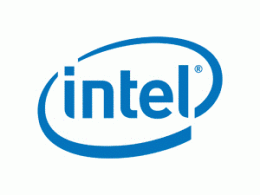In a milestone that is expected to help Intel's push into the smartphone and tablet markets, the Santa Clara, Calif., tech giant finally has made its brainy microchips as energy-efficient as those from companies using a design by Britain-based ARM Holdings, which now dominate the mobile market, according to a new report.
That's important for Intel, which for years got the cold shoulder from phone and tablet makers because its power-hungry chips shortened the battery life of mobile devices. With its new chips, Intel could find its way into a few more of those gadgets, the study by Bernstein Research analysts said Monday.
But they cautioned that the development doesn't mean the world's biggest chipmaker is headed for a huge boost in revenue.
Bernstein noted that the ARM camp has such a commanding lead in phones and tablets that Intel probably won't make much of a dent in those markets for a couple of years - even with its energy-efficient chips.
Moreover, Bernstein determined that the performance of ARM-based chips has increased enough to be suitable for low-end notebooks, which could begin to challenge Intel's dominance in the personal computer market.
Both chip types "are very close in terms of power efficiency and processing power," the report concluded. As a result, it said, "the competitive fight between the ARM and Intel camps will therefore heat up meaningfully as early as 2013, with likely damages on both sides and no winner."
For its study, Bernstein compared Intel's chip in a Motorola RAZR phone and a RAZR phone with an ARM chip. It also compared both chips in similar tablets outfitted with the Windows 8 operating system.
"In smartphones, Intel is competitive in terms of power efficiency," the analysts concluded, and the company "poses a credible threat to ARM's dominance" in tablets.
But it also said ARM's chips have become more powerful, making them "a very compelling choice" for consumers looking for low-end notebooks.
"Overall, there is no stand-out difference in power efficiency or performance between the two camps," the report said, adding that it all points to "more direct competition" between Intel and the ARM chipmakers.
Nathan Brookwood, of the market consulting firm Insight 64, agreed that Intel will have trouble making headway in mobile devices. Besides its late start in those markets, he noted, the dominant smartphone suppliers-Samsung and Apple - prefer to make their own chips. In addition, he said, other mobile-device makers like ARM chips because it's often easier to mix and match certain features with them than with the kind Intel sells.
Another problem for Intel is that ARM chips tend to be cheaper, so the company may need to cut its prices - and its profit - to compete, according to a note Raymond James analysts sent their clients.
They said Intel's gross margins - money left over from revenue after accounting for the cost of goods sold - have been 62 percent to 65 percent in recent years. But as Intel ramps up its competition with ARM chipmakers, the analysts warned, "mid-50 percent gross margins are an increasing reality."
(c)2012 San Jose Mercury News (San Jose, Calif.)
Distributed by MCT Information Services





















